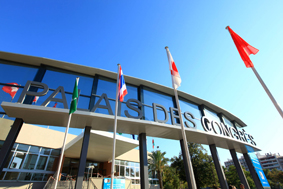Keynote Speakers
DOCTOR SIMON CONROY (UK)
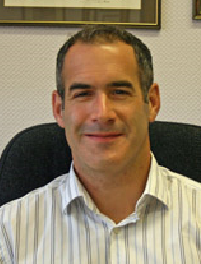 Plenary Session 1
Plenary Session 1
Sunday, 8 September 2013
13:00
Simon Conroy is an academic geriatrician based in Leicester, and has a clinical and research on urgent care for older people. He developed vertically integrated urgent care pathways for frail older people in Leicester – Interface Geriatrics.
Lecture: Systems approach to caring for older people
PROFESSOR KENT DENMARK (USA)
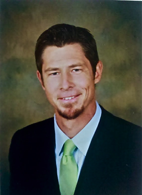 Plenary Session 2
Plenary Session 2
Sunday, 8 September 2013
13:30
T. Kent Denmark M.D. graduated from Loma Linda University School of Medicine in 1994. After completing a pediatric residency and pediatric emergency medicine fellowship, he joined the faculty at Loma Linda in the Department of Emergency Medicine. He began running medical simulations with the pediatric emergency medicine fellows and pediatric residents shortly thereafter. The initial scenarios consisted of standing around an empty gurney and using a lot of imagination. With the acquisition of Loma Linda’s first medium fidelity simulator, simulation became a tangible reality within the Emergency Department. After acquiring two high-fidelity simulators thanks to generous community donations, Dr Denmark was tasked with developing a campus-wide simulation center at Loma Linda where he now serves as Medical Director.
The Medical Simulation Center (MSC) currently serves students in Medicine, Nursing, Dentistry and Allied Health, as well as practitioners from the Medical Center across disciplines and throughout the continuum of care. After four years using a converted computer lab in Risley Hall, the MSC moved into a new 8000 square foot facility in Centennial Complex in January 2010 designed with physically contiguous simulated care areas to reproduce the continuum of healthcare. There, the group continues to integrate learners from all health-care disciplines and to develop and facilitate inter-professional teamwork before learners enter the clinical environment. The group has partnered with Graduate Medical Education and Patient Safety and Reliability to use simulation for teaching teamwork and communication skills as well as creating remediation opportunities for healthcare workers after sentinel events. Recently, the MSC participated in validation of the new electronic medical record program prior to it’s deployment within the University Medical Center.
Dr Denmark is a Professor of Emergency Medicine, Pediatrics and Basic Science, is an Associate Editor for MedEdPORTAL, is the former Pediatric Emergency Medicine Fellowship Director, is on the editorial board of Pediatric Emergency Practice, is a reviewer for Respiration, the AAMC Research in Medical Education (RIME) conference, and the Canadian Journal of Emergency Medicine, has provided expert childhood drowning testimony for the Consumer Product Safety Commission, has moderated multiple regional and national simulation skills labs, is the American Academy of Pediatrics Emergency Medicine representative to the Council of Pediatric Subspecialties, has served on the Pediatric Emergency Medicine Fellowship Directors subcommittee on simulation, and was the recipient of the Loma Linda University Graduate Medical Education Educators award in 2007.
Lecture: Non-intuitive applications of simulation in Patient Safety and Human Factors
PROFESSOR JUDD E. HOLLANDER (USA)
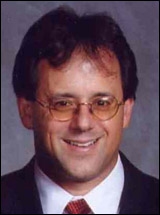 Plenary Session 7
Plenary Session 7
Wednesday, 11 September 2013
08:30
Judd E. Hollander, MD, is Professor and Clinical Research Director in the Department of Emergency Medicine at the University of Pennsylvania. He graduated from New York University Medical School in 1986, completed an Internal Medicine Residency at Barnes Hospital in 1989, and an Emergency Medicine Residency at Jacobi Hospital in 1992. His research interests include risk stratification and treatment of patients with potential acute coronary syndromes and congestive heart failure; cocaine associated cardiovascular complications; and laceration and wound management. Dr. Hollander has published over 400 peer-reviewed articles, book chapters, and editorials on these and other topics. Dr. Hollander is a past President of the Society for Academic Emergency Medicine, past member of the SAEM Board of Directors (2000-2003, 2006-2009), and past Chair of the SAEM Program Committee. He has been a member of the Emergency Medicine Foundation Scientific Review Committee (1996-2003) and is past Chair of this committee (2000-2002). He is currently a Deputy Editor for the Annals of Emergency Medicine; has served as Associate Editor for Academic Emergency Medicine and as a reviewer for NEJM, JAMA, Circulation, JACC as well as many other EM and Cardiology journals. Dr. Hollander was the awarded the ACEP Award for Outstanding Research in 2001, the Hal Jayne SAEM Academic Excellence Award in 2003 and the SAEM Leadership Award in 2011.
Lecture: Clinical Research for Today & the Future
PROFESSOR BERNARD L. LOPEZ (USA)
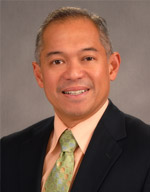
Plenary Session 3
Monday, 9 September 2013
08:30
Bernard L. Lopez, MD, MS, is Professor and Vice Chairman of the Department of Emergency Medicine at Jefferson Medical College in Philadelphia, Pennsylvania. He is also the current Director of Clinical Research. He graduated from Jefferson Medical College in 1986, completed his residency training in Emergency Medicine at Thomas Jefferson University Hospital in 1989. After completing his training, Dr. Lopez joined the faculty at Jefferson. The early part of his career was devoted to research. He spent his early research years in the laboratory where he studied acute cardiac ischemia and reperfusion injury in a rat model. This was followed by involvement in translational research where he investigated the role of nitric oxide in the acute presentation of sickle cell disease. During this time, he served as Director of Clinical Research. Education and faculty development became the focus of the next phase of his career. From 2001-2013, Dr. Lopez held the position of Associate Dean of Student Affairs and Career Counseling at Jefferson Medical College where he provided academic, personal, and career counseling to medical students. From 2003-2012, he served as Vice Chair for Academic Affairs in the Department of Emergency Medicine. In this role, he provided oversight and direction to medical student, resident, and faculty education as well as clinical research and faculty development. He also served as Residency Program Director in Emergency Medicine from 2006-2010. In 2012, Dr. Lopez resumed the role of Director of Clinical Research. In 2013, he was appointed Vice Chairman in the Department of Emergency Medicine where, in addition his academic oversight and guidance, he would provide additional oversight and guidance in clinical operations.
Dr. Lopez’s academic interests are focused on clinical research in emergency medicine, the acute presentation of sickle cell anemia, resident and student education, faculty development, and patient flow in the emergency department.
Lecture: The Future of Emergency Medicine Practice - What Will We Need to Research?
PROFESSOR JEAN-LOUIS VINCENT (BELGIUM)
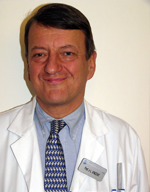
Plenary Session 4
Monday, 9 September 2013
14:15
Dr Vincent is Professor of intensive care at University of Brussels and Head of the Department of Intensive Care at the Erasme University Hospital in Brussels. Specialist in Internal Medicine, he spent two years training at the University of Southern California with Prof. Max Harry Weil.
Dr. Vincent has signed more than 800 original articles, some 300 book chapters and review articles, and 850 original abstracts, and has edited 86 books. He is co-editor of the Textbook of Critical Care (Elsevier Saunders, 5th Edition) and the “Encyclopedia of Intensive Care Medicine” (Springer).
Dr. Vincent is the editor-in-chief of "Critical Care", "Current Opinion in Critical Care", and "ICU Management". He is member of the Editorial Boards of about 30 journals including "Critical Care Medicine" (senior editor), American Journal of Respiratory and Critical Care Medicine (AJRCCM), "PLoS Medicine", "Lancet Infectious Diseases", “Anesthesiology”, "Intensive Care Medicine", "Shock", and "Journal of Critical Care".
Dr. Vincent is presently Secretary General of the World Federation of Societies of Intensive and Critical Care Medicine and President of the Belgian Society of Intensive Care Medicine (SIZ); he is a Past-President of the European Society of Intensive Care Medicine, the European Shock Society, and the International Sepsis Forum.
For 33 years he has organized an International Symposium on Intensive Care and Emergency Medicine which is held every March in Brussels.
He has received the Distinguished Investigator Award of the Society of Critical Care Medicine, the College Medalist Award of the American College of Chest Physicians, was the Recipient of the "Society Medal”(lifetime award) of the European Society of Intensive Care Medicine and has received the prestigious Belgian scientific award of the FRS-FNRS (Prix Scientifique Joseph Maisin-Sciences biomédicales cliniques).
Lecture: Global vision of sepsis management.
DOCTOR DAVID WILLIAMS (UK)

Plenary Session 6
Tuesday, 10 September 2013
14:15
Dr David Williams is emeritus Consultant in Emergency Medicine to Guy’s & St Thomas’ Hospitals in London. He has been President of the British Association for Emergency Medicine, the UK Faculty (now College) of Emergency Medicine and the European Society for Emergency Medicine, EuSEM. He was Chairman of the UEMS Multidisciplinary Joint Committee (MJC) on Emergency Medicine from 2006-2012 and is currently the first President of the new Section of Emergency Medicine of UEMS, the Union Europeenne des Medecins Specialistes.
Lecture: Development of Emergency Medicine in Europe.


